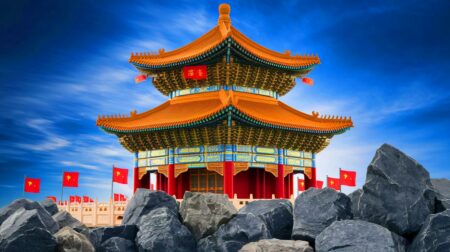Nestlé, the world’s largest food and beverage corporation, says that by 2020 there will be no more deforestation linked to its products and embedded in its supply chains. That’s an ambitious goal for the Swiss multinational, which now is making progress by monitoring oil palm plantations from the sky.
On Tuesday, the company announced that 77 percent of its supply chain was now deforestation-free. “We have boots on the ground, we work with The Forest Trust (now called Earthworm), our partner, nongovernmental organization,” says Dr. Magdi Batato, the Egyptian-born vice president and Head of Operations for Nestlé. But in order to accelerate the effort, the use of technology is critical to reach forests in remote or rugged terrain, taking the place of thousands of people they’d otherwise need.
“We have teamed up with Airbus satellites,” Batato said. “With satellite imaging we can zoom into the areas which are more critical, and then we can go more in details into those areas.”
Starling’s success relies on 1.5m-resolution images captured by Airbus’ SPOT 6 and 7 satellites. “Since palm oil plantations can sometimes be concealed by cloud cover, Starling overcomes this obstacle by combining satellite imagery with radar data or other free optical data from Landsat and Sentinel 2,” the Airbus company explains. In addition to TFT/Earthworm, Nestlé and food giant Ferrero, SarVision in the Netherlands – a spinoff startup from Wageningen University – also is a project partner.
Batato called the satellite imaging a game-changer. The Starling system provides real-time imaging of what’s happening in Malaysia or Indonesia, and delivers the actionable data. The system triggers an alarm for any possible deforestation events within 50 kilometers of hundreds of Nestlé mills.
“We use the alerts to investigate deforestation cases in our supply chain and take action where they are verified,” the company says. In some cases, the visible deforestation patterns are linked to other agricultural crops, to mining and urban development, or for palm oil that isn’t produced for the company.
Yet Nestlé still processed 57 grievance cases in 2018 that led to 10 suspensions of companies investigated. Almost all of them were in Indonesia or Malaysia, with two cases in Liberia and another two in Peru, and more than half were for deforestation. Other grievance cases related to peatland damage, labor rights, land conflicts or business ethics.
Nestlé also has launched an online monitoring dashboard to improve transparency on its palm oil sourcing, and it invites the public to share in what it’s achieving with the Starling satellites.
“Society in general is more and more sensitized, especially the new generation,” said Laurent Freixe, the Zone Americas CEO for Nestlé. “Millennials, they really care for the planet, they really care for their communities, so this is of high interest for our consumers. They want to know where their food comes from, how it’s been sourced, has it been ethically sourced.”
Yet Nestlé also answers to shareholders and they increasingly expect sustainable business practices, Freixe said. With palm oil accounting for some 40 percent of global deforestation and damaging the planet’s capacity to fight back against climate change, Nestlé has to answer to investors while reducing its carbon emissions and overall environmental footprint.
“They want to hear and they are asking questions about what we are doing,” he said.
The company has Starling pilots under way for its pulp and paper operations, with plans to extend it to soya production later this year.
Did you like it? 4.7/5 (21)








